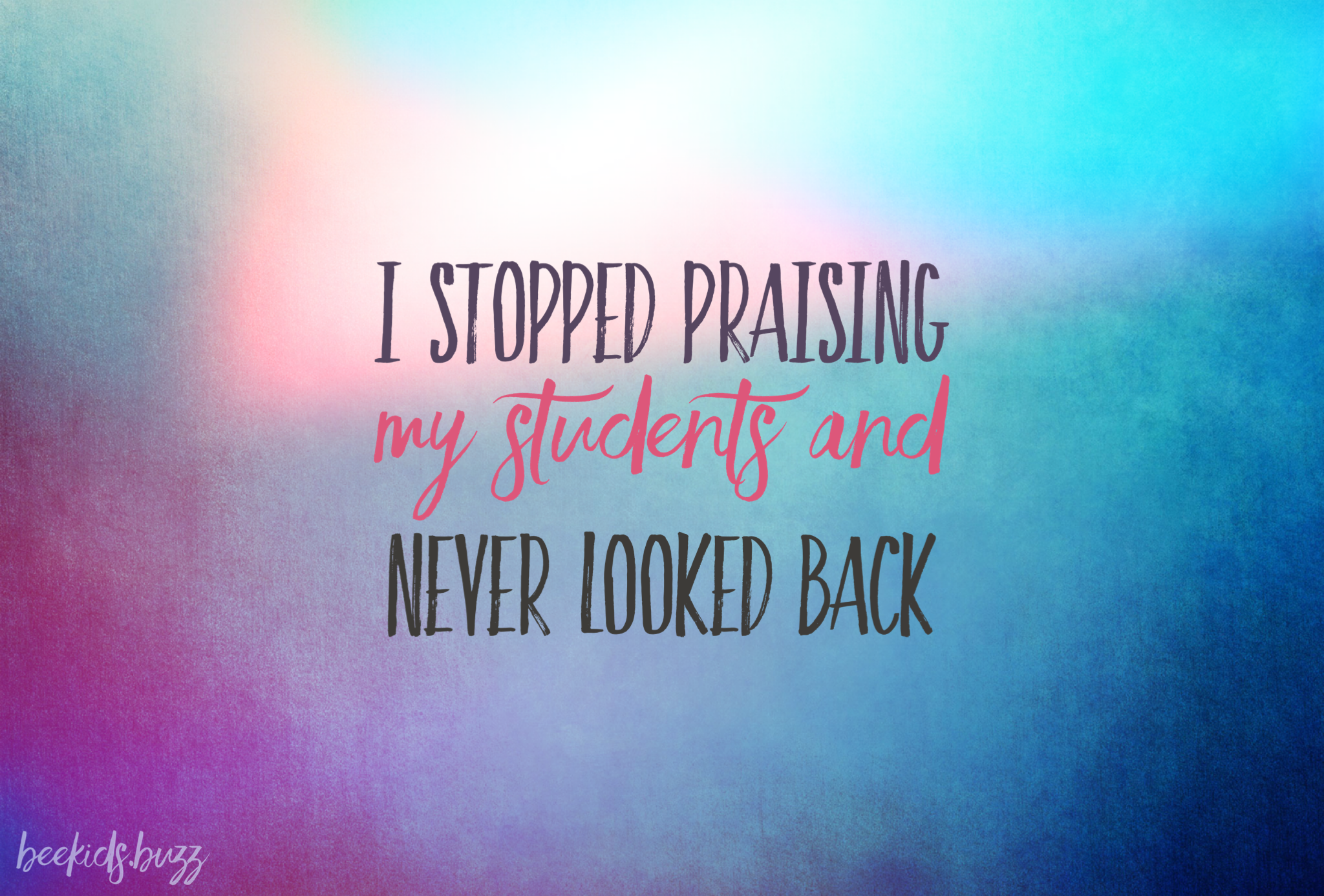It was a mundane moment that changed my life. A spontaneous action and reaction. The kind that happens most days. But, this momentary exchange altered my perspective on teaching, childcare, relationships, and so much more.
Significantly, I learned this lesson from 4-year-old children.
Life before now
Many moons ago, I taught English as a foreign language to small groups of children aged 1 to 8-years-old.
I loved this job.
Each class was an hour long and during that time we played games, got creative, danced and sang. We had a ton of fun.
I loved the kids and, as an educator, I thrived.
That one class…
There was one class that puzzled me.
There were two 4-year-olds, Aoi and Yumi (not their real names). They were both very quiet, polite, and keen to follow instructions. In fact, they were so obedient they rarely engaged with any activity. An observer might see an “easy” or “well-managed” class, but I felt a gnawing lack of connection.
Where other children happily raced, jumped, or wiggled their way through lessons, neither Aoi or Yumi joined in. To encourage them, my partner teacher and I bent the curriculum to meet their interests, set up free-play time and sensory play areas, tried doing more – and doing less.
We gently guided the children and praised all their efforts (not only their accomplishments). And, to minimize any fears about making mistakes, we demonstrated fallibility with a positive “try-again” response.
Months ticked by. The children, though happy, did not seem captivated.
Questions, questions, questions
If you know me or have visited this blog before, you’ll be aware that I seek to connect with, rather than control, the children in my care. Instead, I follow the children’s lead allowing them to explore their own interests and participate in a way that is natural to them; some kids need to move a lot, others like to chat, and there are those who prefer to observe.
But, in this case, I couldn’t shake the sense that neither Aoi or Yumi felt comfortable enough to be themselves and, without this open connection, I was struggling to follow them and meet their needs.
It became a real conundrum. How could I find a better balance in our relationship? Since both children were reluctant to engage, the classes were overwhelmingly teacher-centric. How could I follow their lead, if they were more comfortable following mine? I wondered if I was overthinking things; it was entirely possible that our quiet, teacher-centered class was exactly what the children needed and, in taking charge, I was already following their lead.
Then again, it was also possible that I had a lesson of my own to learn…
Tuesday, around 3 o’clock.
It was the tiniest event, almost non-descript; while tidying away resources, I dropped something. Yumi picked it up and handed it to me. I thanked her.
BOOM!!
Our world together changed and I learned a life-altering lesson (that I was embarrassed to have not discovered sooner).
Three simple, understated words, “Thank you, Yumi.”
She smiled. A tiny, nervous smile.
Without missing a beat, Aoi jumped up and handed me a piece of fluff. I thanked him too. From this point on Aoi and Yumi raced around the classroom finding ways to help. They did not want me to say, “Good job,” “Well done,” “Awesome,” or “Excellent.” These two, beautiful children simply wanted to be appreciated for being who they already were.
They needed me to say, “Thank you.” They needed to be valued and appreciated.
In Praise of Appreciation
Had I never thanked them? I was mortified to consider this possibility. Perhaps, I had only modeled “Thank you,” but had never truly thanked them. In praising their efforts, had I inadvertently created a pressure be different than they were? While busying myself with lesson plans designed to engage them, had these children become puzzles to solve instead of human beings experiencing their own lives? Had I forgotten to see them, to enjoy their company, to appreciate them?
From that day on, my life changed. Every interaction had a new dimension. I made sure to appreciate all my students (and beyond). The difference was remarkable. It was more than saying, “Thank you.” Instead, I sought to appreciate people for who they were and, in doing so, found greater joy in my personal and professional relationships.
Not only this, the relationships with my students blossomed in ways I could never have imagined.
Children don’t seek praise; they (like the rest of us) want to be appreciated. Fully, genuinely appreciated. Being told your work is “wonderful” is nice, but when someone shows appreciation for your efforts you know you are valued.
Not alone
Later that year, I presented a series of workshops, about relationship building, to groups of teachers from around the world. Educators worked in groups to brainstorm ways in which to let children know they were happy with their work and efforts.
Not one person included the phrase, “Thank you.”
Up to that point, I had been beating myself up for not showing my students how much I appreciated them, but it turned out I was not alone. In our quest to boost our pupils’ self-esteem and confidence, we had forgotten to appreciate them.
In the months and years that followed, I observed countless lessons by both new and experienced educators. Time and time again, I witnessed teachers congratulating children for their good behavior or work rather than thanking them for their positive choices or efforts. I learned how easy it was for us to overlook the small things, to believe we are modeling good manners by saying “please” and “thank you,” while forgetting to fully appreciate who our students are.
“Don’t forget, a person’s greatest emotional need is to feel appreciated.”
– H. Jackson Brown Jr.
Now, more than a decade later, this lesson is more valuable than I could have imagined.
Life Now
My son, El, is autistic. He struggles with direct praise; in fact, praising him sends him into an emotional tailspin. Fortunately, thanks to Aoi and Yumi, we were able to adapt to his needs fairly quickly. We habitually used appreciation instead of praise, so much so we initially forgot to share this with his teachers.
Predictably, when El started pre-school, teachers praised him when he did something well; in response, he panicked and shut down. Needless to say, once we discovered El was struggling, we gave more details about how we communicated at home (and had to fight the guilt that comes with not thinking about it sooner). Immediately, El was more able to navigate his day.
From that day forward, we have included this communicative approach in all El’s reports and evaluations. This year, he began full-time school. Even before he walked through the gates, the teachers knew to avoid direct praise and opt for appreciation instead. There are many other accommodations being made to assist El, but I believe this to be one of the most vital.
Life after now
Over the last decade, I have come to understand how appreciation can take many forms (WikiHow gives some practical instructions on how to show your appreciation in different ways).
Being genuinely appreciative holds much more value than simply acknowledging a job well done; it is more dignified and respectful, it holds truth and warmth, it connects us to others.
There is a time and a place for praise, I have not abandoned it altogether, but true appreciation can never be enough.
Someone recently commented that we should not need to be especially mindful of such standard interactions. I disagree. Mindfulness, in all our conversations and actions, is essential; what may seem standard to us could be vitally important to someone else.
Saying “thank you” is more than good manners. And appreciation is more than giving thanks. On that day, I had looked at Yumi, I thanked her and said her name. I was grateful, not as her teacher but as her equal.
I suspect there are many bosses who could do with learning this lesson too. 😉
Keep buzzin’
For more about appreciation, check out this poem.



Sounds like you found a great teaching method. It makes sense, and it’s nice that you found something that worked so well for you.
Thanks so much for your comment. I was fortunate to know these children and to have my eyes opened by them. For me, this lesson was more than a teaching method it was a new paradigm and consciousness about how I viewed and interacted with the world. 🙂
What a great story! I agree that it does feel nice to feel appreciated! It’s amazing those simple words can completely change attitudes.
Yes, I think the world could be so much more beautiful if we all took a little more care over the language we use.
Thank you! Yes, so true. Taking care of our language is so important. Words can be gifts or weapons and too often we are unaware of their impact.
That is such a nicely written story! And true! Thank you for reminding us the power of simple things !
Thank you, Andreea. It is very often the simple things that can change the world. 🙂
Seems like you found a great way to teach. A great leader always a way to make things simple and better, yet still learn the same. Great job.
Thank you. This is very kind and extends far beyond teaching. 😊
I love this! I have been trying to cut back on the praise at home too, I’ve noticed turning my language to how she feels instead of how I feel really encourags her!
Lovely! This is such a good point, and a vital step in building emotional well-being. Helping children explore and explain their own feelings is a beautiful thing to do.
I learned early on that if I want my son to be appreciative of what I do for him, I need to be appreciative towards him first. He is only 3-years-old now but thanks people in a way many get surprised and ask me how I thought him. While actually I didn’t teach anything. What I did was thanked him every time he did something nice and that’s how he responds now too. Children can teach us so much. This article is a great reminder to everyone to just be appreciative.
Oh yes! Our example has so much more impact than our efforts to teach! Thanks so much for shining a light on this.